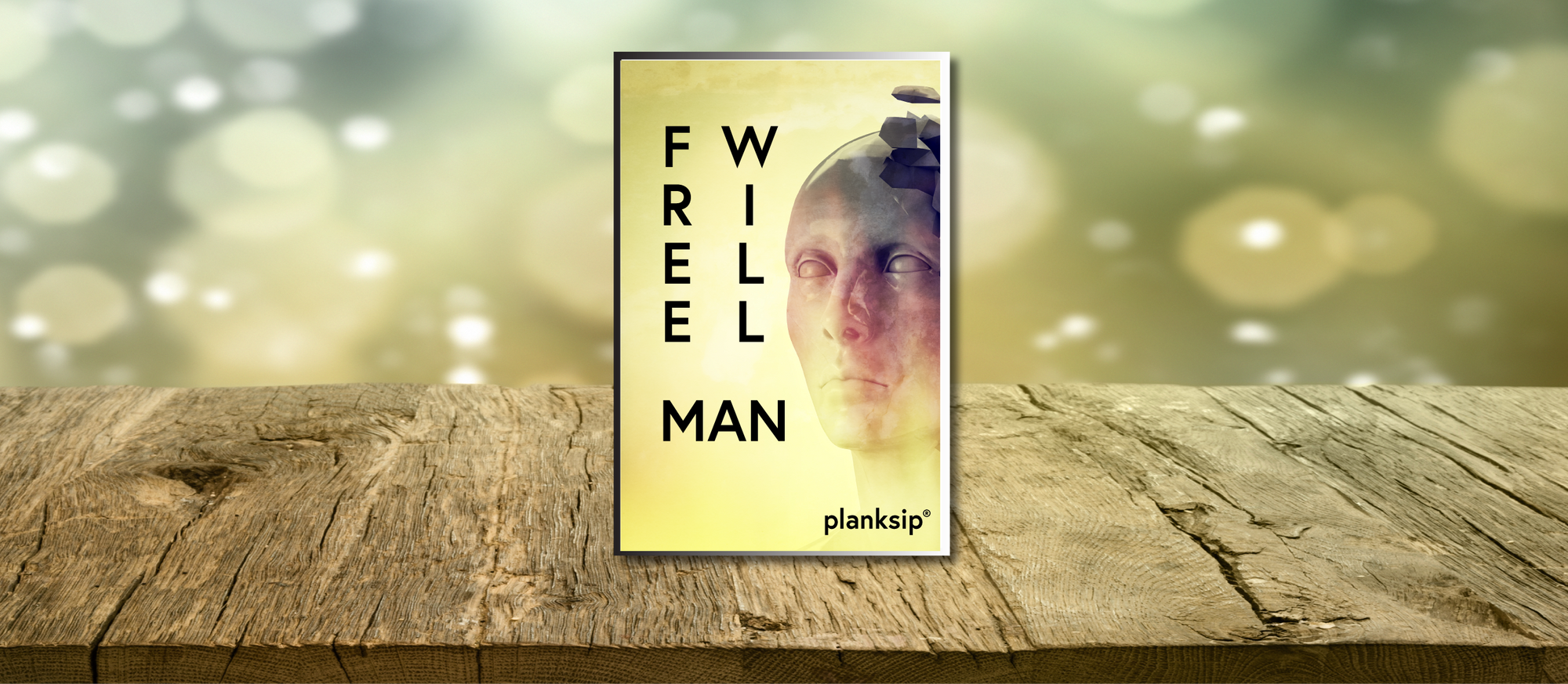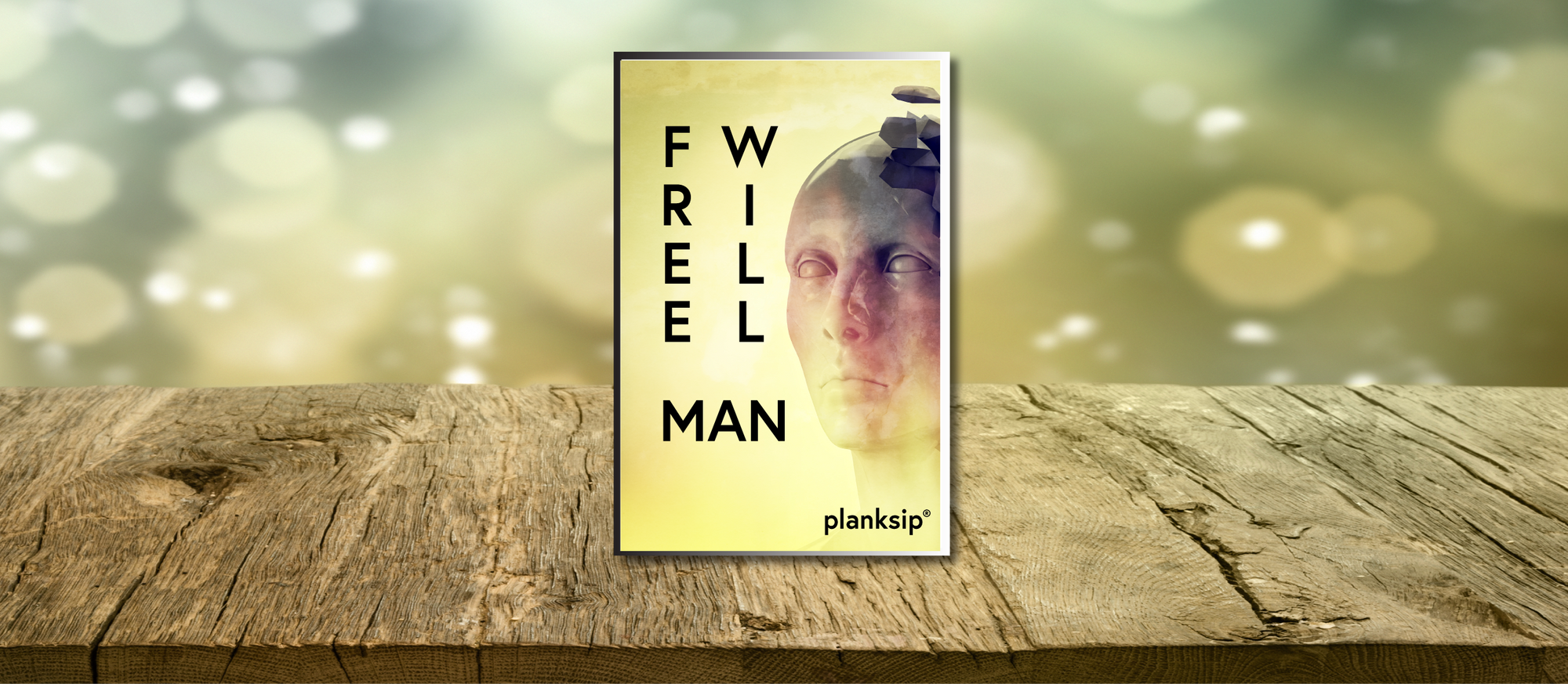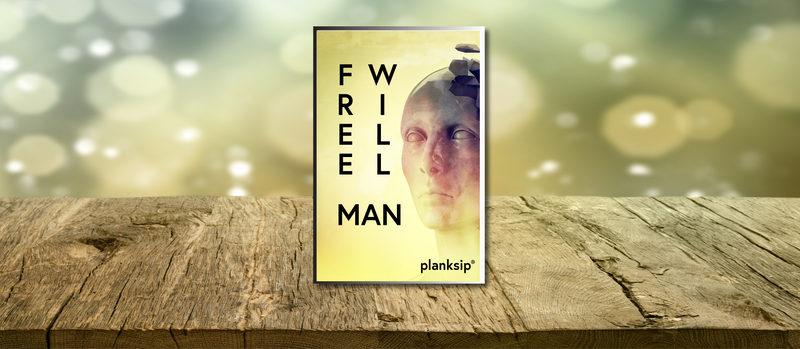What are Your Thoughts on Free Will?

The Future of Free Will
I approach a position on Free Will like an audience member watching an Emperor wearing a new set of clothes; as an illusion about an allusion. We are all actors on this stage of life, our only stage of life. Our dramas are dramatic, our struggles are real. Pull back far enough in perspective and fatalism will proclaim, "We have no alternative choice beyond that of life or death." As the reclusive eccentric John B. McLemore[1] tragically reiterated, the "shit-show" will go on! Cyanide was the exit drug of choice for John. For me, I am a temporal compatibilist in philosophic discussions but a determined determinist at heart without the fallacies of fate and the social ability to respond. The context of the Free Will conversation is contemporary with a perspective of history and projections of prosperity, however, as we define these concepts, we define who we are as a species, despite any and all preconceived resignations to the eventuality of the Universe. It would be interesting to assign individual schemas with Stoic sensibilities and contrast with Epicurean introspection and see how these schemas overlay with a taxonomy of compatibilists and dead-end perspectives of individuation. This algorithm is something I am working on implementing into the planksip® Gadfly mnemonic app. I am planning to overlay these algorithms with multiple Markov Chains, increase the algorithmic overlays and watch for the correlations. Freedom, or at least the modern Rousseau-ish concept of freedom that we embrace from the French Revolution, is anchored to, and synonymous with, Existentialism and it's fetishism on individual responsibility. Our ability to respond circles back to freedom like a doG chasing its tail. It's in our nature. Like it or not, the ability to respond is stimulating and life-sustaining. For me, determinism is the embodiment of resigned potentiality and an ongoing negotiation with our individual freedoms. How do we protect the autonomy of the individual? Do we need to preserve the autonomy of the individual? If the world goes to "shit", our ability to react is our only exit strategy, not ancient mythical hero worship. I am not against archetype psychology and the teachings of Jung, but after all, Carl Jung was a disciple of the pseudo-scientist Sigmund Freud. I can look past the plethora of confirmation biases but most people can not and that is not good for healthy conversation. Akin to horoscopes and a leap of faith this dance resembles the hoky-poky with one foot in and one foot out. When will it all fall down?
The Preventative Approach to Determinism and Deter versus Respond
I am also OK with determinism, yet any idea of fatalism is flawed. When our ancestors had thoughts of futurity, they knew no better, than to call it "fated by the Gods." Did Ancient Greece lack a deeper understanding of probabilities? The randomness of the Astragali is often overlooked. Or was it? This 80/20 rule of probabilities dates back 50,000 years ago to the origins of modern language itself and I think developed in tandem with this playful, mythological banter. Mythologies are dangerous, not for the people that invent them, or the generations that remember what it's like to be something[2], for they are just coping mechanisms and metaphors of meaning. The danger emerges from the interpretation of the mythologies and the romancing of these stories outside the Existential context from which they were created. Determinism has the mustard seed of "deter" and implying preemptive prevention.
All other points on this hypothesis regress to this mean, or central "synthesis-synapse". The monistic, holistic approach to the Free Will Debate is rooted in an individual's ability to Deter versus Respond. This is the spectrum to which we all fall. Preventative versus Reactionary. Why temporal? As long as our consciousness (individual and collective) exists in the pursuit of freedom (ability to respond), Will Existentialism persist? Only time will tell.
Aristotle and Meditations of form versus, "For me"...
The "For me" preface that introduces a perspective on behalf of an individual is a wholehearted attempt to connect with other individuals and convey humility. Serendipitous maybe, admirable for sure. The duality Aristotle offers us between Form and Matter parallels the dialectic of what "matters". Introduced through the preface of, "For me", these expressions may digress towards nefariously means and should[3] be used sparingly. "For-me" is hard to falsify and it plays with the pseudo. That being said, "For me", is a watchword of free thought. We need to preserve and protect our ability to respond in an open and free society. As long as a response, whether in speech or any future form of social expression, is not inhibited and we all have the ability to pursue a eudaimonic life, we all have a life worth living.
Inescapable Positions of Individuation
This controversy began ex nihilo between Anscombe and Lukasiewicz regarding the principle of individuation on the works of Aristotle (see Anscombe et al. 1953). At the beginning of any discussion related to Free Will or Determinism, I try to preface all opening remarks with a definition of Individuation and bring attention to the potential pitfalls of isolating any position into an unfalsifiable point-of-view. Are you ready? Ready for the paradigm shift? Our comprehension and artificial manipulation of information structures are changing the landscape of life. The evolution of our species is underway. The definition of consciousness is a delta function, a change over time of the mind over matters of perceived reality. Time is an important dimension to the definition of consciousness and I am surprised that it doesn't filter into every discussion. Did I back myself into a corner? How do we test this theory? The arrow of time moves forward in cadence with our thoughts. Defining consciousness should be easy if time was irrelevant. Our consciousness in 500,000 years will not be like it is today. Do I really need to justify that claim? It seems like an impossibility that lights will turn on in the same way.
Frustrations
My frustration with the debate is that determinism is restricted to the definition of predetermination and ontologically rests on a concept of fate. From a Scientific perspective, determinism really only means a cause and effect relationship within an empirical model of predictability. I start from the Scientific definition of determinism and include entropy, which increases randomness over time, and probability into an epistemology of contemporary understanding of determinism. This is the reality of the Universe, and anyone that disagrees or argues with this position should also take exception to the entire Scientific body of knowledge and Praxis. At this point in history and consciousness, individual perceptions of reality require a translator, a grand narrative, a functional fiction. Free Will is this illusion and allusion. The sense of self, the number one, and the very concept of the Latin phrase sui generis is a fiction. We exist on a stage of life and this show must go on! Descarte's immaterial soul or Kant's nominal self were nice attempts in their time but they should have known better. The concept of astragali (probability and chance) where known prior to even the pre-Socratics.
If the understanding of indeterminism includes randomness and chance, this move throws the baby out with the bath water. Imagine defining a beetle in a box as a needle in a haystack. I can perceptively see the beetle immediately when I look in the box. No searching involved. Indeterminism puts you on a path of meaning incompatible with the definition of empirical perception. It's better to modify the meaning of determinism to include chance and probability. Mathematical models deterministically predict the positions and paths of causal chains. The alternative is a plank in the eye and the needless searching of the Libertarians.
S-Town PodCast - https://stownpodcast.org/ ↩︎
Inspired by Thomas Nagel's 1974 paper, "What Is it Like to Be a Bat?" ↩︎
Should implies ought. Ought implies ethics. And Ethics implies an if... then statement, which is conditional and probabilistically or causally falsifiable. For more on planksip® Ethics visit this webpage. ↩︎


